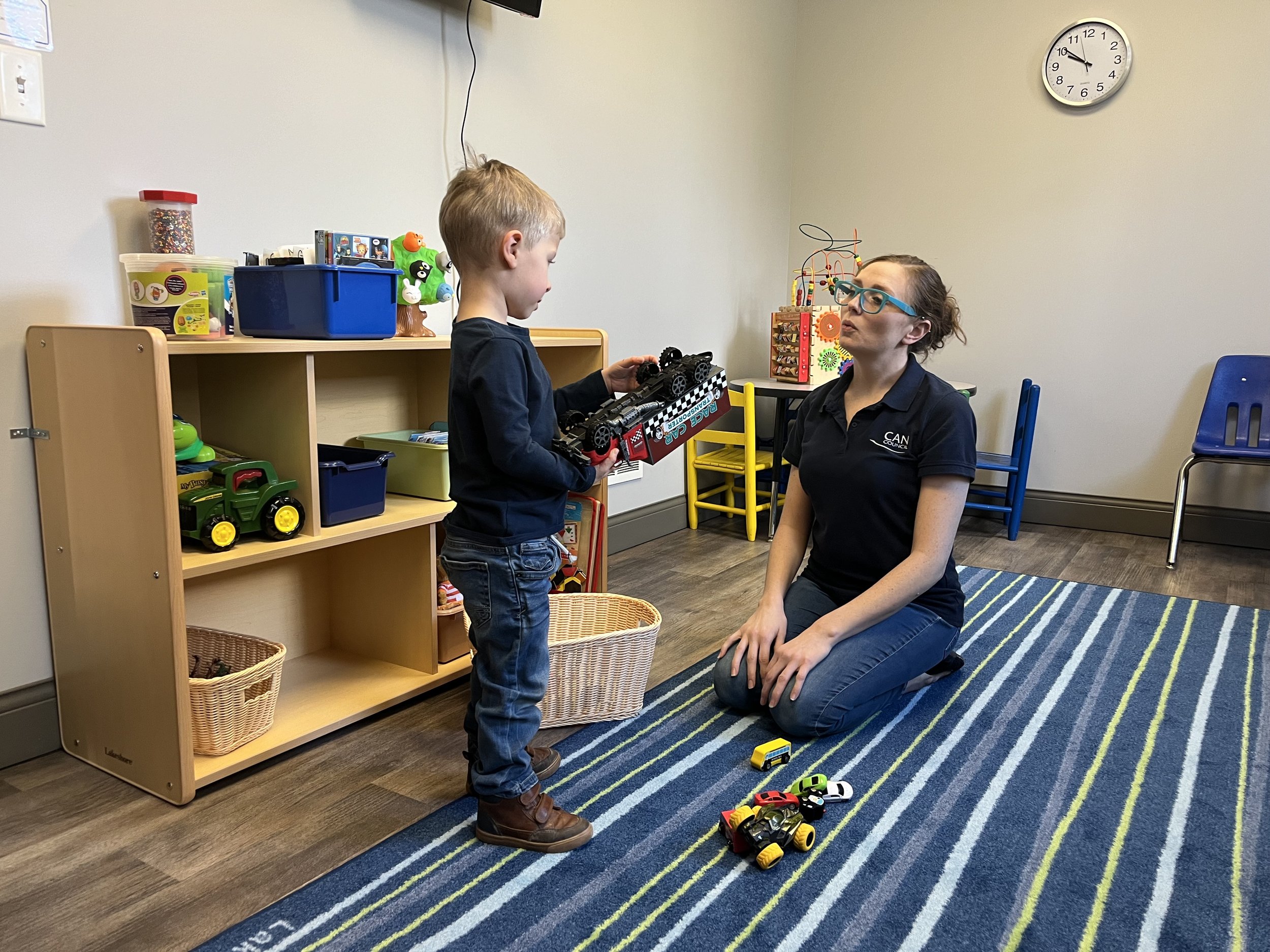
At our center, children find a safe haven where their voices are not just heard, but honored. Whether they have endured physical or sexual abuse, neglect, or the trauma of witnessing violence, we offer a lifeline of support where children are heard and can heal.
Children's Advocacy Center (CAC)
What is a Children's Advocacy Center (CAC)?
CAN Council's CAC serves as a beacon of hope for children across Arenac, Bay, Huron, and Saginaw Counties at no cost to families. Through expert forensic interviews and medical examinations conducted in a secure and nurturing environment, we provide a path toward healing.
Our mission extends beyond the child alone
We offer ongoing support to non-offending caregivers, recognizing that healing is a collective journey. Our CAC plays a pivotal role in aiding the investigation of child abuse while fostering an atmosphere of safety and trust.
Services are not denied based on actual or perceived race, color, religion, national origin, sex, gender identity, sexual orientation, or disability.
We treat your child with the utmost care throughout the process
Liaison with Law Enforcement
After an allegation is reported and a referral is made from Law Enforcement or Children's Protective Services, our CAC will set up a forensic interview with your child.
Building Rapport & Trust
When you arrive, our Care Coordinator immediately begins building rapport and establishing trust to make your child as comfortable as possible.
Forensic Interview Setup
Your child will be accompanied to the interview room by our Forensic Interviewer while the Multidisciplinary team observes through a closed-circuit television. Our Care Coordinator will remain with you to offer support, resources, and help with any questions or concerns.
Continued Care & Support
When the interview is over, our Care Coordinator will provide next steps and be available to support you and your child for as long as you need after your visit.

How you can help your child before the interview
Assisting a child in preparing for a forensic interview involves the important steps of creating a safe and supportive environment, explaining the process in language that is suitable for their age, and offering emotional support throughout and after the interview process.
Do not unload your feelings
Either about the abuse or investigation on your child; instead confide in a trusted family member, friend, or counselor.
Follow your child's lead
When discussing what happened; do not press them for information about their interview.
Encourage healthy boundaries
Teach them about appropriate touch and what consent looks like verbally and physically. Learn more using this guide.
Be calm and reassure them
Tell your child that you believe and support them, will keep them safe, and express pride in them. Avoid promising a specific legal outcome to your child.
Cooperate with investigators
Provide accurate information without guessing and update them of any changes or new information. Do not coach your child on what to say for interviews or court proceedings; rely on professionals for guidance.
Maintain consistent routines
Keep a regular schedule and/or activities with your child to provide a secure structure for them.
Frequently Asked Questions
Find answers to common questions about CAN Council's services, how to get involved, and what to do if a child needs help.
-
When police or children’s protective services believe a child may be experiencing abuse, the child is brought to the CAC—a safe, child-focused and victim-centered environment—by a caregiver or other “safe” adult. At the CAC, the child tells their experience once to our trained interviewer who knows the right questions to ask in a way that does not retraumatize the child. Then, a team that includes law enforcement, prosecution, children’s protective services, victim advocacy, and other professionals makes decisions together about how to help the child based on the interview.
-
A forensic interview is a one-time, recorded conversation intended to collect a child's specific details in cases of suspected abuse or witness to violence. The interview is conducted by a specially trained CAN Council staff member. Interviews are conducted with care and avoid leading questions. Representatives from agencies like law enforcement and children’s protective services observe the interview remotely as part of the investigation.
-
The purpose of a forensic medical exam is to collect evidence and document trauma if present. It is also performed to reassure the child and family that his/her body is okay. Medical Exams are performed on-site by a pediatric Sexual Assault Nurse Examiner (SANE) at CAN Council’s Saginaw facility. Medical exams in Arenac, Bay, and Huron Counties are provided by a local trusted partner or at our Saginaw facility.
-
It is important for our interviewer to talk with your child alone. If something abusive has happened to your child, it might initially be difficult for your child to talk about this in front of you. If your child discloses abusive incidents it might be upsetting to you. The team members have the responsibility of observing, assessing and investigating the allegations. The team’s focus must be on your child. While you are not permitted to observe the interview, our Care Coordinator & Legal Advocate will support you throughout your visit to our Children’s Advocacy Center and while your child is in the interview room.
-
CAN Council’s Care Coordinators & Legal Advocates are here to support you and your family through this challenging time. Counseling resources, legal advocacy and other support information will be provided throughout your child’s interview. You will receive regular follow-up support from our staff following the interview. You can also check out our “Get Help” page for more resources.
-
Yes! Our Care Coordinators and Legal Advocates are here to provide information and support regarding any concern of child abuse or neglect within our communities.
-
If you suspect abuse, first call Michigan Children’s Protective Services (CPS) at 1-855-444-3911 – any time, day or night. Reports can be made anonymously. In case of emergency, call 911. Forensic Interviews at our CAC must be scheduled through law enforcement or Children’s Protective Services, however, our CAC resources and support can be offered directly to families at any time.

Do you think a child has been abused?
Make a report today. Call Michigan Children’s Protective Services (CPS) at 1-855-444-3911 – any time, day or night. Reports can be made anonymously.
Other resources to explore
-

Explore our Prevention Education Programs
We offer programming for students, parents, educators, and community members.
-

Understand the Signs of Child Abuse & Neglect
Understand what to do and look out for if you suspect a child is being abused.
-

Learn How to Report Child Abuse
Follow the standard protocols of reporting neglect or abuse as a mandated reporter.
-

Children’s Resource Packet
Grounding activities to calm children during moments of stress or reliving trauma.
Have a specific question?
Need help, have questions, want to donate or get involved? Reach out to us. We're here to help.







